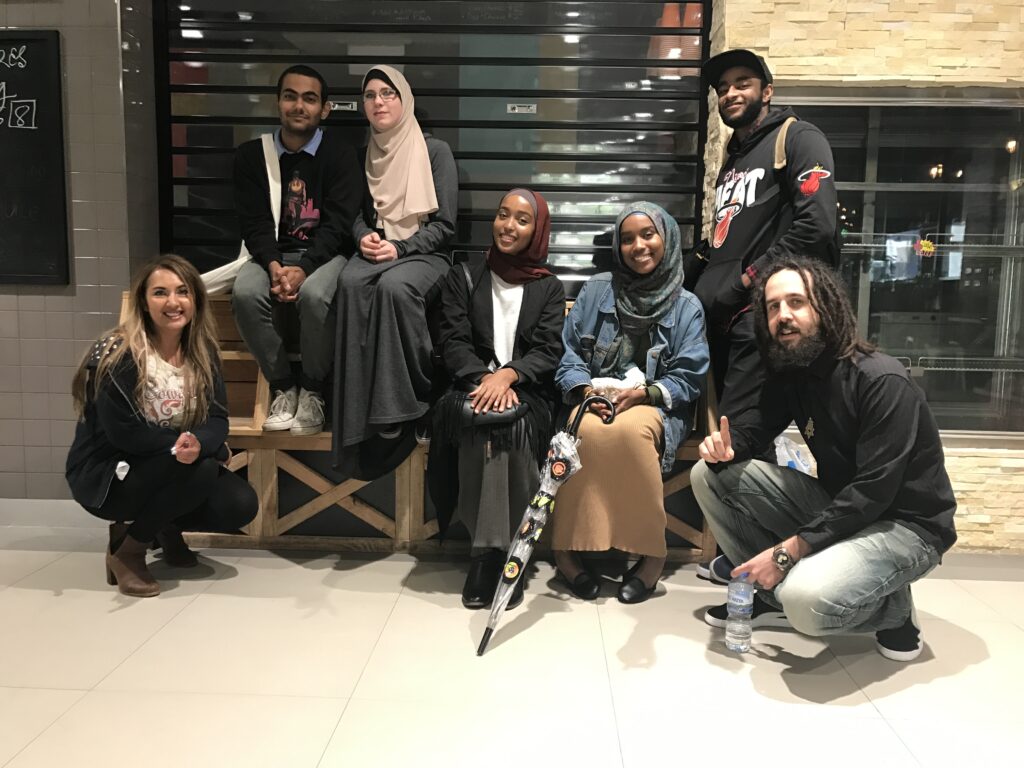Faces of Open Government: Anooshe Mushtaq
Meet Anooshe Mushtaq, National Account Director of Defence and Federal Government at NEXTDC. Through her work as a civil society member in Australia’s Open Government Forum, Anooshe has been a champion in fostering inclusive dialogue and engaging vulnerable and historically excluded communities through innovative approaches. In this month’s edition of Faces of Open Government, explore her insights on combating misinformation and the unique link open government can have in propelling advocacy and social justiceTo address barriers that prevent citizens from having their justice needs met, OGP participating governments are working to expand transparency, accountability, and inclusion into all systems of justi....
You’ve worked with both government and private stakeholders in expanding information and communication technology and national security. How has this experience helped you in advancing open governance in Australia?
I have a broad range of experience in Information and Communication Technology (ICT), in senior management roles, and national security have aided in my engagement in open government.
In open government, it’s important to understand the challenges faced by immigrant and minority communities. Having experienced firsthand challenges migrating to Australia in my earlier teens, I am passionate about social inclusionOGP participating governments are working to create governments that truly serve all people. Commitments in this area may address persons with disabilities, women and girls, lesbian, gay, bisexual, tr... More, tolerance, and respect for the “culturally and linguistically diverse” communities in Australia.
Can you tell us about your work as a civil society member in Australia’s Open Government Forum?
I was honored to be appointed as a civil society member to participate in the development of Australia’s third OGP action planAction plans are at the core of a government’s participation in OGP. They are the product of a co-creation process in which government and civil society jointly develop commitments to open governmen.... My proposed commitmentOGP commitments are promises for reform co-created by governments and civil society and submitted as part of an action plan. Commitments typically include a description of the problem, concrete action... was mis-disinformation in the ‘culturally and linguistically diverse’ (CALD) communities. I also proposed “Engagement of Neurodiverse people in the Government” and this commitment will be considered in the future national action plan.
I believe there is a stronger need to engage multicultural civil society members in the Open Government Forum to provide a different perspective in co-designing the future action plans. As migrants, we understand the cultural and religious complexities of our communities.
We have seen divisive rhetoric circulated through media and social media and how mis and disinformation can marginalize historically excluded communities. Our daily experience with the media and social media has highlighted the fact that when incorrect information circulates, it can spread quickly, especially if the topic is of conflict in current affairs.
You provided advice to the Australian Government as a non-official consultant on how to engage with young people at risk of extremism. How can digital platforms be used to engage with vulnerable populations, especially in countering online misinformation and hate speech?
There’s no ‘one path’ to radicalization, but extremist recruiters target vulnerable/ isolated people online because they’re more likely to form extreme views. Extremist ideologies infiltrate online communities to ordinary citizens via mainstream social media channels such as Facebook, Twitter and Snapchat. In order to tackle online extremism and mis and disinformation, we need a two phased approach: Tackling hate speech with the use of digital analytics platforms and tackling hate speech through an online counter-narrative.
Even though the use of analytics platforms is useful to harness mis and disinformation, it is critical that the government engages communities and civil society organizations who can bring grassroots knowledge when tackling harmful narratives online. If the government is able to gain actionable insights around mis and disinformation within the conversation and reveal what the impact of false narratives can bear on public perceptions, trust and behavior, then analytics tools can provide a robust solution to identify, aggregate and visualize all this information.
Neither news nor social media exist in a vacuum. There’s a close and increasingly causal link between negative narratives across social media and acts of extreme violence on the ground. My proposed approach is to discredit the narratives, views and ideology that has been promulgated online by groups who seek to sow fear in communities.
Many government initiatives to involve communities have thus far been limited in scope, lacked cultural insight and/or accountability mechanisms. An approach would be the developing a taskforce to engage committed migrant experts and youthRecognizing that investing in youth means investing in a better future, OGP participating governments are creating meaningful opportunities for youth to participate in government processes. Technical ... More who could provide an alternative online counter-narrative strategy to curb online extremism.
You are also the Founder of The Raqib Taskforce, which is focused on engaging youth in the Australian community in social justice. How do you think open government can contribute to fostering an inclusive and transparent dialogue in addressing these issues?
Raqib Taskforce was structured as a civil society organization led by experts in the fields of Islam, de-radicalisation, academia, national security and communications and designed to empower youth and prevent them from becoming susceptible to online and on the ground violent narratives. Yet, while the government maintains that its national security policies are aimed at safeguarding Australia’s society from the threat of online extremism and criminal activities, Muslim communities feel that their religious and cultural identities are being equated to terrorism and radicalisation. The reason is the long term focus of media and social media on Islamists terrorism. Terrorists use sensationalizing content to boost their presence in social media by promoting mis and disinformation about Islam.

Addressing the rise in extremism requires change from the top. The government and other public officials must consider how the tenor of public discourse contributes to the issue.
A similar approach could be used during the spread of mis and disinformation. Youth of Australia from diverse backgrounds could be engaged to change the narrative of online division rhetoric. There are many outreach programs promoting social cohesion and respect. We need to engage young open government champions, and activists from various multicultural societies as they have the reach to the wider communities.
Comments (2)
simon fenton-jones Reply
OGP Forum members @ NAP 3
https://www.ag.gov.au/integrity/australias-open-government-partnership/australias-open-government-forum
NAP 3 Commitments.
https://www.ag.gov.au/integrity/australias-open-government-partnership/australias-third-national-action-plan
Nice Comment. “I believe there is a stronger need to engage multicultural civil society members in the Open Government Forum to provide a different perspective in co-designing the future action plans.”
With you all the way on that comment.
When one reads “multi-cultural”, they/’re thinking “multi-National”. So the way forward is to round up similar National OGP commitments and consider what would happen if their global communities were to collaborate on building International and Publicly-owned infrastructures rather than comparing between the ones National government limit themselves to.
https://discuss.opengovernment.org.uk/t/open-government-partnership-steering-group-meeting-13th-december-2023/2672/5


Elcena Jeffers MBE Reply
Good opening.